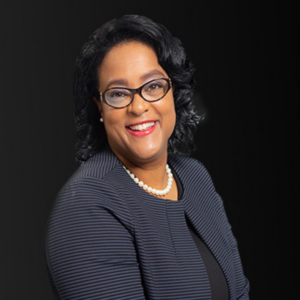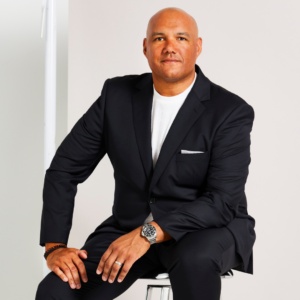Back

Blog
ICAN Steering Committees: How Alumni Entrepreneurs Are Driving Inclusive Growth and Community Empowerment
By Dave Wedge | October 18, 2023
If ICIC is all about supporting businesses in underserved communities, then the Inner City Alumni Network (ICAN) is the entity that proves the model works. ICAN is a vibrant community comprised of 8,000+ alumni from all of ICIC’s programs and initiatives.
Quentella Enty and T.J. Douglas are alums of a variety of ICIC programs and are among the team of steering committee members – expert advisors, mentors, and collaborators for businesses that need that extra support to break through and thrive in today’s ever-changing economic landscape.
“I just really believe that a lot of the businesses that are the target (of ICIC), they’re the heroes of the American economy,” Enty explains. “They are the businesses that not only create jobs in the communities, they stay in the communities. They’re the community leaders who support people and create jobs, and they advocate. It’s important for organizations to help scale those businesses.”
Breaking Down Barriers for Minority Businesses

Enty, Vice President of KFA Inc., a Chicago-based custom computer programming provider, should know. As a member of ICAN’s Chicago Steering Committee, Enty has long been an ambassador for ICIC. She has a master’s degree in business from St. Benedictine University in Illinois and has a resume that includes working with Oprah Winfrey and Larry King, as well as Blue Cross.
She is a lifelong entrepreneur and IT professional and worked on the rollout of the Affordable Care Act as well as working on business development with the Chicago Urban League. At the Urban League, she organized dozens of workshops with government agencies and large corporations to connect them with small businesses in Chicago to break down barriers of access. She held seminars at the Urban League’s offices to make it easier for entrepreneurs and business owners to meet with the agencies and corporations.
“For minorities, because there are so many roadblocks, it’s often hard to get them to go downtown. It was important to have them at the Urban League – with free parking and in a place they felt comfortable with. We had a lot of success,” she recalls.
It was that very hands-on approach that led to her partnership with ICIC. She was connected with ICIC through the Urban League, first through the Inner City Capital Connections program and later when her business was recognized as one of the ICIC’s Top 100 Fastest Growing Inner City Businesses.
She’s since recommended dozens of businesses to ICIC, many of which have joined her on the IC100 list. As an ICAN member, she’s brought in a diverse array of businesses to the organization, including a woman-owned business that makes NBA jerseys, another that owns a fleet of Amazon trucks, and a Black-owned ghost kitchen and food delivery vendor.
“It’s a great pipeline – from ICCC to ICAN – to maintain success,” she explains. “And you are connected with peers facing the same challenges. It’s lonely as a CEO if you don’t have these peers to talk to. It’s so important. You keep these people connected, scaling, and they’re able to do business with one another.”
A Model of Success from Boston to D.C. and Beyond
T.J. Douglas, founder and CEO of The Urban Grape, also knows a bit about scaling and activating businesses in underserved communities. As a new member of the Boston ICAN Steering Committee, Douglas is working with a dozen small businesses looking for the networking, collaboration and support that’s offered by ICAN and ICIC.
“I wanted to use my story and help other entrepreneurs who are coming up,” said Douglas, a Connecticut native who is now based in Boston. “Being on this ICAN steering committee, I really like the potential this has. I see such an opportunity to take the un-traditional path in business. I really feel that what I’ve come through over the past 2 ½ decades, I’ll be able to help someone through and help them build their dreams.”
Douglas moved from New Haven, Connecticut to Vermont when he was 13 and grew up in Bethel, a small town in central Vermont where he was one of the only kids of color. He worked at Killington ski resort before moving to Boston when he was 21 to work in the hospitality industry.

He opened his first retail store, The Urban Grape, in the upscale Boston suburb of Chestnut Hill in 2010 and launched the Drink Progressively Group, a wine brand, consulting company and retail and e-commerce enterprise. He later opened a second brick-and-mortar location in Boston’s South End, stocking the shelves with as many BIPOC-owned beverage brands as possible, while focusing on an inviting atmosphere for newcomers to wine buying.
“Wine can be a very scary thing,” he says. “So I saw an opportunity to remove the intimidation.”
He was introduced to ICIC and enrolled in the ICCC program, which helped his business grow to the point where it has been listed four years in a row on the IC100 Awards list.
“I really like being recognized and seeing the other companies and industries in (ICIC’s) network,” he says. “One of the reasons I wanted to be involved in ICIC was to get to that network. It’s really fun for me to get those connections and for them to get connections to us and have a lot of B to B opportunities and I think that’s what this program is meant to do.”
He’s soon opening a new location in Washington, D.C.’s Shaw District, at the intersection of 9th and N Street, and will be joining ICAN’s D.C. steering committee. The company is now the largest seller of BIPOC-owned beverages in the Northeast and has 18 employees. The D.C. store will employ another 14 people. In addition to retail sales, Urban Grape has in-store tasting tables, wine classes, and community events to break down the barriers between the traditional wine industry and underserved communities.
“It’s all about creating access and building community through beverage,” he says. “Harvard Business School does not provide access to most of us. How are you going to be able to contribute to your community? How are you going to learn to build a business? How are you going to learn to be self-starting and create something? Having a network is extremely important.”
Find more information on ICAN here. Join a steering committee in a region near you!
